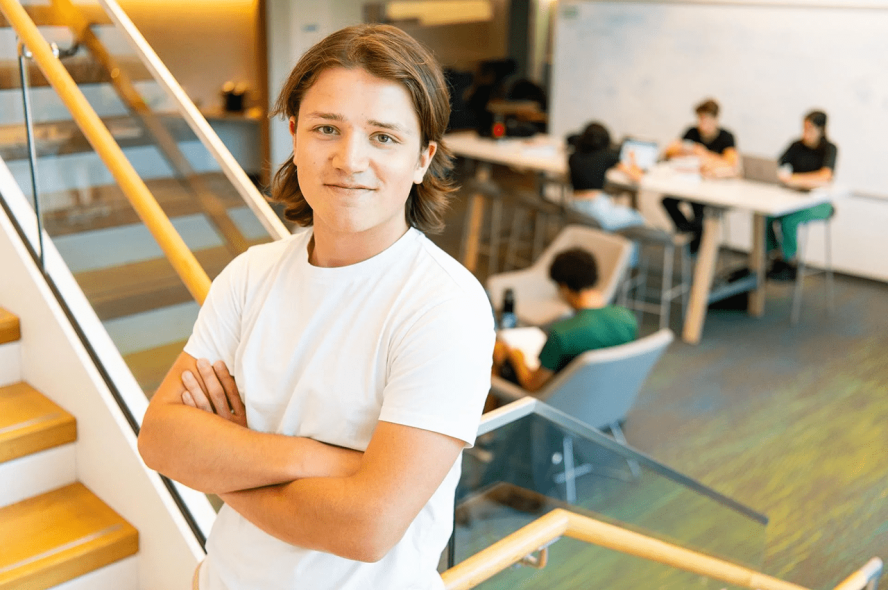Where engineering pathways begin: Zachary Rummler, E23, EG24

Zachary Rummler, E23, EG24, is furthering his undergraduate major in computer engineering through the School of Engineering’s fifth-year program, pursuing a master’s degree in computer science. A New Hampshire native, he is an avid hiker of the White Mountains and a pianist who performed in three jazz bands as an undergraduate. At Tufts, he is a research assistant in machine learning and a teaching assistant in computer organization.
“When I was a freshman, I knew I wanted to study engineering, but I didn't know which branch. Classes in computer science, especially on embedded systems and operating systems during my junior year affirmed I was headed in the right direction. The subject matter of each just seemed so interesting: I wanted to go on and learn about things like AI, databases, and parallel computing.
“Computer science was always a strong possibility; how computers actually worked seemed like magic to me. A couple years ago, though, I had the chance to figure them out. A relative had to buy a new laptop and gave me their old PC that the tech people couldn't fix. They said: ‘If you can get it working, you can keep it.’ So I took it apart, found the problem, and now it’s my own computer. I was surprised the tech people hadn’t been able to find it. It seemed simple to fix to me when I saw what was going on.
“I have a thirst for new things, and there's a lot of innovation in the computer world. And I like a challenge. I’ve hiked all 48 of the 4,000-footers in New Hampshire’s White Mountains. One of my favorite hikes was a 20-mile hike when we hit about five 4,000-footers in a single day. It was demanding to take on that challenge; I was always thinking about hiking a new mountain.
“In computer engineering, I’m also always looking for the next big challenge. My Tufts education has always been about learning and mastering new concepts. I think that will carry over after graduate school, when I am able to adapt to new challenges in the workplace.
“One professor who’s been important to me as a graduate student is Mark Hempstead, E03 [associate professor in electrical and computer engineering]. I’m a teaching assistant for him as well. I had a meeting with him recently and he helped me organize my thoughts and ambitions. He offered valuable advice as I look ahead.
“The master's degree is going to open doors to me professionally. If I envision where I want to go, I’d like to develop my expertise in AI. I’m interested in AI’s potential as a solution for different environmental challenges. At my recent internship with New Hampshire-based Aclara, I had an opportunity to see first-hand the potential of smart meters that employ AI algorithms to monitor and improve energy efficiency and safety; the implications for modernizing the country’s energy grid are exciting. So I’m putting my computer science degree to work, I hope, in creating a greener and more sustainable planet.”
Read more student profiles in Where Engineering Pathways Begin by Laura Ferguson/Tufts Now.
Department:
Computer Science